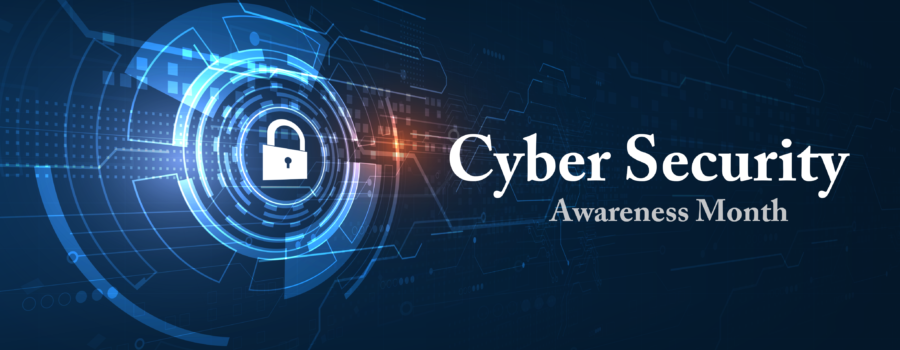Cybersecurity Tips for Personal Safety: Protecting Yourself in the Digital Age

In today’s interconnected world, cybersecurity is more important than ever. We use the internet for virtually everything – from shopping and banking to socializing and working – making us vulnerable to cyber-attacks. Cyber threats are growing in sophistication, and personal safety online is at risk. Whether you’re a student, a professional, or simply someone who spends time online, it’s crucial to know how to protect yourself from malicious activities. This blog will cover essential cybersecurity tips that can help you safeguard your personal information and stay secure in the digital world.
1. Use Strong, Unique Passwords
One of the simplest yet most effective ways to secure your online accounts is by using strong, unique passwords. Many people use the same password across multiple sites, which increases the risk of a security breach if one of those sites gets hacked. Here’s how to ensure your passwords are secure:
- Length and Complexity: Your passwords should be at least 12-16 characters long. Use a mix of uppercase and lowercase letters, numbers, and special characters.
- Avoid Common Phrases: Don’t use easily guessable passwords like “password123” or your name. Avoid using birthdates, phone numbers, or other personal information.
- Use a Password Manager: Password managers are tools that generate and store your passwords securely. They make it easier to manage different complex passwords without having to remember them all.
- Enable Two-Factor Authentication (2FA): Whenever possible, use 2FA to add an extra layer of security. This means even if someone steals your password, they won’t be able to access your account without a second form of identification (such as a code sent to your phone).
2. Keep Software and Systems Updated
Cybercriminals often exploit vulnerabilities in outdated software, which is why it’s essential to keep your operating system, apps, and antivirus programs up-to-date. Software updates often include patches that fix security flaws, so you should never ignore update notifications.
- Set Auto-Updates: Most modern operating systems, apps, and antivirus programs allow for automatic updates. Ensure this feature is enabled so that your system is always protected.
- Update Your Browser: Browsers are often targeted by hackers due to their widespread use. Regularly update your browser to ensure that any security issues are fixed.
- Update Your Apps: Whether it’s your smartphone or your computer, keeping your apps updated is just as important. Developers often release security patches that fix vulnerabilities.
3. Be Cautious of Phishing Attempts
Phishing is a form of cyberattack where hackers impersonate legitimate companies or individuals to trick you into revealing sensitive information like passwords, bank account numbers, or Social Security numbers. Phishing attempts can be delivered via email, text, phone calls, or even social media.
- Check the Sender’s Email Address: Be wary of emails that seem unusual or have a strange sender email address. Scammers often impersonate well-known organizations or individuals by altering the email domain slightly (for example, using “bankofrnerica.com” instead of “bankofamerica.com”).
- Don’t Click on Suspicious Links: Avoid clicking on links or downloading attachments from unfamiliar sources. Hover over the link to see where it leads before clicking. Always go to the official website by typing the address directly into your browser instead of clicking a link.
- Look for Red Flags: Be suspicious of emails that create a sense of urgency, such as “Your account has been compromised” or “Immediate action required.” Legitimate companies rarely ask for sensitive information via email.
4. Use Secure Wi-Fi Connections
Public Wi-Fi networks, such as those found in cafes, airports, or hotels, are convenient but can also be a hacker’s playground. Criminals can intercept your data on unsecured Wi-Fi networks, exposing your personal information to theft.
- Avoid Using Public Wi-Fi for Sensitive Transactions: Avoid conducting financial transactions or accessing sensitive information (like logging into your bank account) on public Wi-Fi networks.
- Use a Virtual Private Network (VPN): A VPN encrypts your internet connection, making it much more difficult for hackers to intercept your data. Always use a VPN when connecting to public Wi-Fi.
- Check Your Wi-Fi Settings: If you’re at home, ensure that your Wi-Fi is password-protected and that you use WPA3 encryption. Avoid using default passwords for your router; change them to something unique and complex.
5. Secure Your Mobile Devices
Your smartphone contains a wealth of personal information, making it an attractive target for cybercriminals. Securing your mobile device is just as important as securing your computer.
- Set a Strong Password or Biometric Authentication: Use a password, fingerprint, or facial recognition to lock your phone. This adds an extra layer of protection in case your phone is lost or stolen.
- Install Only Trusted Apps: Download apps only from official app stores like Google Play or Apple’s App Store. Avoid third-party app stores, as they may offer apps with malware.
- Enable Remote Wiping: Enable remote tracking and wiping features on your device (such as Find My iPhone or Find My Device for Android) in case it gets lost or stolen. This will allow you to erase sensitive data remotely.
- Use Antivirus Software: Many security apps now offer mobile-specific versions that protect against malware and phishing attempts.
6. Beware of Social Engineering
Cybercriminals often use social engineering tactics to manipulate individuals into giving up sensitive information. This can include impersonating a trusted individual or using psychological manipulation to exploit human error.
- Verify Requests for Personal Information: If someone contacts you and asks for sensitive information, always verify their identity before providing any details. Don’t rely solely on the information they provide you—use a different communication channel to confirm their request.
- Don’t Overshare on Social Media: Be mindful of the information you share on social media platforms. Avoid posting sensitive details like your full name, phone number, address, or vacation plans, which can be used by criminals to steal your identity.
7. Regularly Backup Your Data
Data loss can occur for many reasons, from accidental deletion to a cyberattack. Regularly backing up your important files ensures that you can recover them if something goes wrong.
- Use Cloud Storage: Cloud storage services like Google Drive, OneDrive, and Dropbox are convenient and secure ways to store your important files. Ensure that your cloud storage accounts are protected with strong passwords and 2FA.
- External Hard Drives: For extra security, you can back up your data to an external hard drive. This adds an additional layer of protection against cyber threats and ensures you have a copy of your files even if your online storage is compromised.
8. Monitor Your Accounts and Credit
Regularly monitoring your financial accounts and credit report helps you catch any suspicious activity early. Cybercriminals often engage in identity theft, opening new accounts or making fraudulent transactions in your name.
- Use Identity Theft Protection: Many services offer identity theft protection, which includes monitoring your credit report and alerting you to any suspicious activity.
- Review Your Bank Statements: Frequently check your bank and credit card statements for unauthorized transactions. The earlier you spot a problem, the quicker you can report it and take action.
- Freeze Your Credit: Consider freezing your credit if you’re concerned about identity theft. This prevents anyone from opening new credit in your name without your permission.
9. Educate Yourself About Cybersecurity
The more you know about cybersecurity, the better you’ll be at protecting yourself online. Cyber threats are constantly evolving, so staying informed is essential to keeping your personal data safe.
- Follow Cybersecurity Blogs: Many reputable cybersecurity websites and blogs offer advice, news, and best practices for staying secure online.
- Take Online Courses: Many free and paid courses teach the basics of cybersecurity and how to protect yourself from common online threats. Platforms like Coursera, Udemy, and LinkedIn Learning offer valuable resources.
10. Know What to Do If You’re Hacked
Despite all your efforts, there may come a time when you’re targeted by cybercriminals. Knowing how to respond in the event of a hack is crucial.
- Immediately Change Your Passwords: If you suspect that your account has been hacked, change your passwords immediately. Ensure that your new password is strong and unique.
- Report the Incident: Report the breach to the relevant authorities or the service provider. For example, contact your bank if your financial account has been compromised, or report the issue to social media platforms if your account was hacked.
- Monitor for Further Activity: After a breach, monitor your accounts for any additional unauthorized activities and take steps to secure them.
Conclusion
Cybersecurity is a critical concern for everyone in the digital age. By taking proactive measures, such as using strong passwords, keeping software updated, being cautious of phishing attempts, and securing your devices, you can protect your personal information from cybercriminals. Remember, cybersecurity is an ongoing process, so stay vigilant and informed about the latest threats and best practices to keep yourself safe online.


